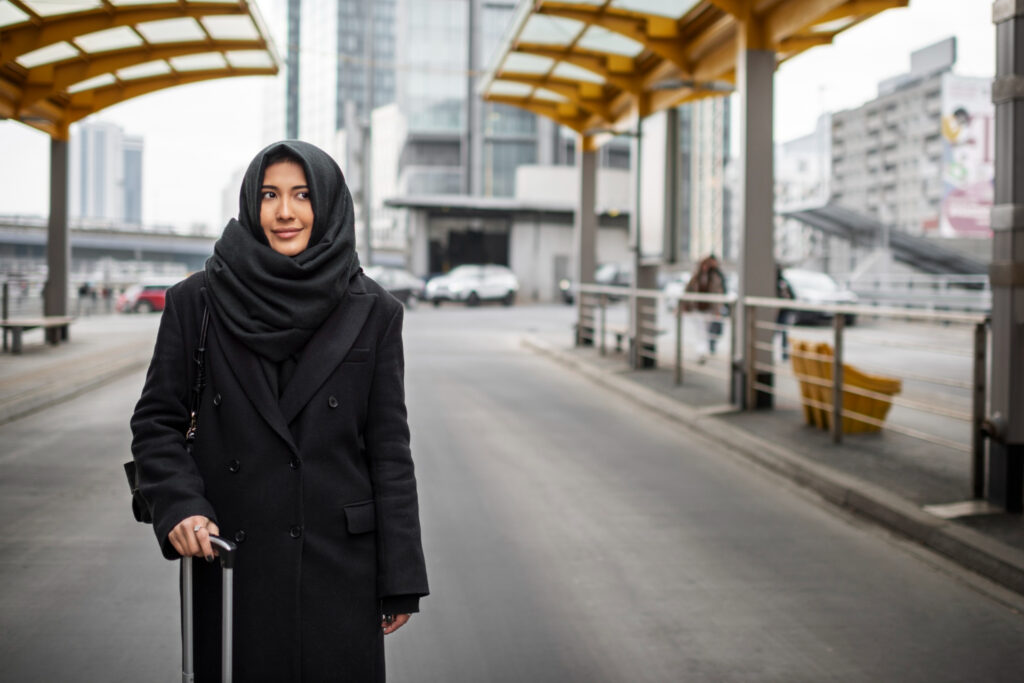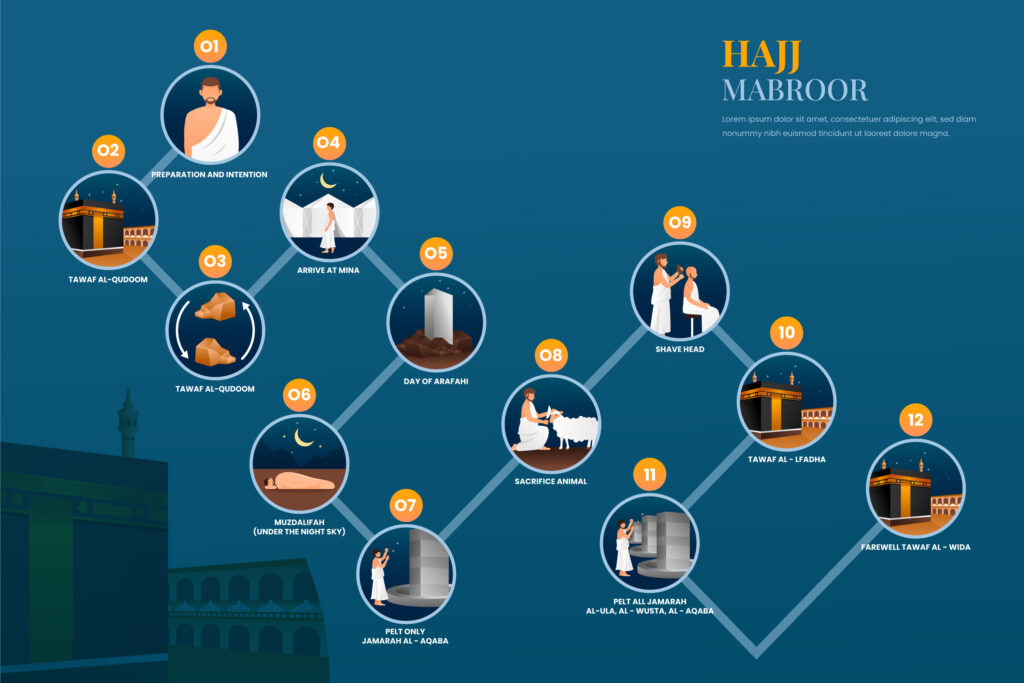The Hajj pilgrimage is a sacred journey undertaken by millions of Muslims from around the world every year. It is a time of intense spiritual reflection and devotion, where believers seek forgiveness, blessings, and closeness to Allah. One of the most significant aspects of Hajj is the recitation of duas (supplications) at various stages of the pilgrimage. These duas hold immense importance and are believed to profoundly impact the journey. In this article, we will explore the best Hajj duas, delve into their significance for each ritual, and discuss the etiquettes surrounding their recitation.
Understanding Hajj Duas
Hajj duas are an integral part of the pilgrimage experience, allowing pilgrims to connect with Allah on a deeper level. These supplications serve as a means of seeking forgiveness, guidance, strength, and blessings during the arduous journey. They act as a source of solace, reminding pilgrims of their dependence on the Almighty and reinforcing their faith.
When is The Best Time to Dua in Hajj?
The best time to pray during Hajj varies depending on the specific rituals and their associated supplications. Here are some key moments during Hajj for Dua:
- Day of Arafah.
- Nighttime in Muzdalifah.
- Tawaf.
- At Maqam Ibrahim.
- During the stoning of the Devil.
Pilgrims are encouraged to engage in continuous remembrance of Allah and personal prayers throughout their entire Hajj journey.
Best Hajj Duas
Here are some examples of Dua during Hajj:
Firstly, Dua of Intention (Niyyah)
Before embarking on the Hajj journey, it is crucial to make a sincere intention to perform Hajj for the sake of Allah alone.
This dua signifies the purity and sincerity of one’s intentions, setting the foundation for a spiritually fulfilling pilgrimage.
for example:
“Here I am for Hajj. Here I am, oh Allah, here I am. Here I am. You have no partner. Here I am. Surely all praise, grace and dominion is yours, and you have no partners”
اللهمّ إني نويت الحجّ فأعنّي عليه، وتقبله مني، لبيكَ اللَّهمّ لبّيك، لبّيك لا شريك لك لبّيك، إن الحمد والنعمة لك والمُلْك، لا شريك لك.
Secondly, the Dua of Talbiyah
This is a well-known invocation recited repeatedly during Hajj. It is a proclamation of the pilgrim’s readiness to respond to Allah’s call and surrender completely to His will. The Talbiyah helps create an atmosphere of unity and devotion among the pilgrims.
Such as:
“Here I am, O Allah, here I am, here I am. You have no partner, here I am. Verily all praise and blessings are Yours and all sovereignty. You have no partner.”
“لَبَّيْكَ اللَّهُمَّ لَبَّيْكَ، لَبَّيْكَ لا شَرِيكَ لكَ لَبَّيْكَ، إنَّ الحَمْدَ والنِّعْمَةَ لكَ والمُلْكَ، لا شَرِيكَ لكَ”
Lastly, the Dua of Arafah
The day of Arafah is the pinnacle of the Hajj pilgrimage, and the supplications made on this day hold immense significance. Pilgrims gather at the plain of Arafah, seeking forgiveness and beseeching Allah’s mercy. The dua of Arafah is a heartfelt plea for forgiveness, guidance, and salvation.
For example:
“O Allah! I beseech You for guidance, piety, chastity, and contentment”
“اللَّهُمَّ إِنِّي أَسْأَلُكَ الْهُدَى وَالتُّقَى وَالْعَفَافَ وَالْغِنَى”
Note that: Those are just examples, you can pray and Dua whatever you wish
Hajj Duas Etiquette
- Firstly, Sincerity:
It is crucial to recite duas with utmost sincerity, focusing on the meaning and intention behind each supplication.
- Secondly, Humility:
Demonstrating humility and recognizing one’s insignificance before Allah is essential when reciting duas. This attitude of humility helps in establishing a strong connection with the Almighty.
- Lastly, Consistency and Repetition:
Repeating the duas multiple times during the pilgrimage reinforces their significance and allows the pilgrim to internalize their meanings.
Conclusion
In conclusion, Hajj duas are a powerful means of seeking Allah’s blessings, forgiveness, and guidance during the pilgrimage. They provide spiritual solace, strengthen the connection with the Divine, and remind pilgrims of their purpose and dependence on Allah. By understanding the significance of each dua and adhering to the etiquettes of their recitation, pilgrims can enhance their Hajj experience and benefit from the profound spiritual impact of these supplications. May Allah accept the Hajj of all the pilgrims and grant them blessings and forgiveness.






